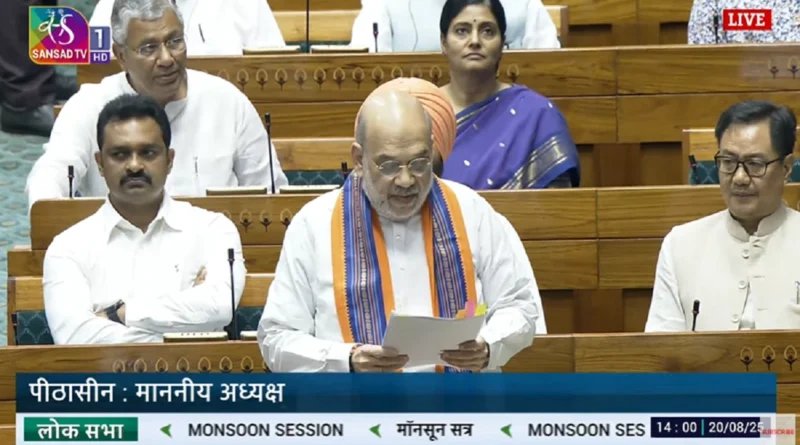Home Minister Amit Shah introduced a bill in the Lok Sabha empowering the removal of arrested Prime Ministers and Chief Ministers, which sparked strong opposition protests.
Amit Shah introduced the Constitution (One Hundred Thirtieth Amendment) Bill, 2025, the Union Territory Government (Amendment) Bill, 2025, and the Jammu and Kashmir Reorganization (Amendment) Bill, 2025 in the Lok Sabha. However, the session was marked by intense uproar from the opposition, which strongly opposed the bills.
Union Home Minister Amit Shah on Wednesday introduced a controversial set of bills in the Lok Sabha, proposing that if a serving minister, chief minister, or even the prime minister is arrested or held in custody for 30 consecutive days in connection with an offence carrying a punishment of five years or more, they will be compelled to vacate their office within a month.
The bills tabled included:
- The Constitution (One Hundred Thirtieth Amendment) Bill, 2025
- The Union Territory Government (Amendment) Bill, 2025
- The Jammu and Kashmir Reorganization (Amendment) Bill, 2025
The session, however, was marred by uproar, as the opposition strongly objected to and protested against these legislative proposals.
Key Provisions of the Bills
Union Territory Government (Amendment) Bill, 2025
According to the statement of objects and reasons, the Union Territory Government Act, 1963 currently lacks any mechanism to remove a chief minister or minister who is arrested or detained on serious criminal charges. The proposed amendment to Section 45 of the Act seeks to provide a legal framework enabling their removal in such circumstances.
Constitution (130th Amendment) Bill, 2025
The explanatory memorandum underscores that the Constitution does not presently contain provisions for the removal of a prime minister, central minister, state chief minister, or cabinet minister if they face arrest in connection with grave criminal charges. To address this lacuna, the bill seeks amendments to Articles 75, 164, and 239AA of the Constitution, thereby establishing a uniform legal framework.
Implications of the Constitutional Amendment
The amendment explicitly states that if a prime minister, chief minister, or minister remains in judicial custody for 30 consecutive days, they shall automatically forfeit their office. The caveat is that the alleged offence must carry a minimum punishment of five years or more.
This provision implies that even in the absence of a conviction, mere prolonged detention would suffice for removal from office. In effect, it aligns ministers with the standards applied to government employees, who are automatically suspended upon arrest.
Stay updated with Latest National News in Hindi on Prabhasakshi

